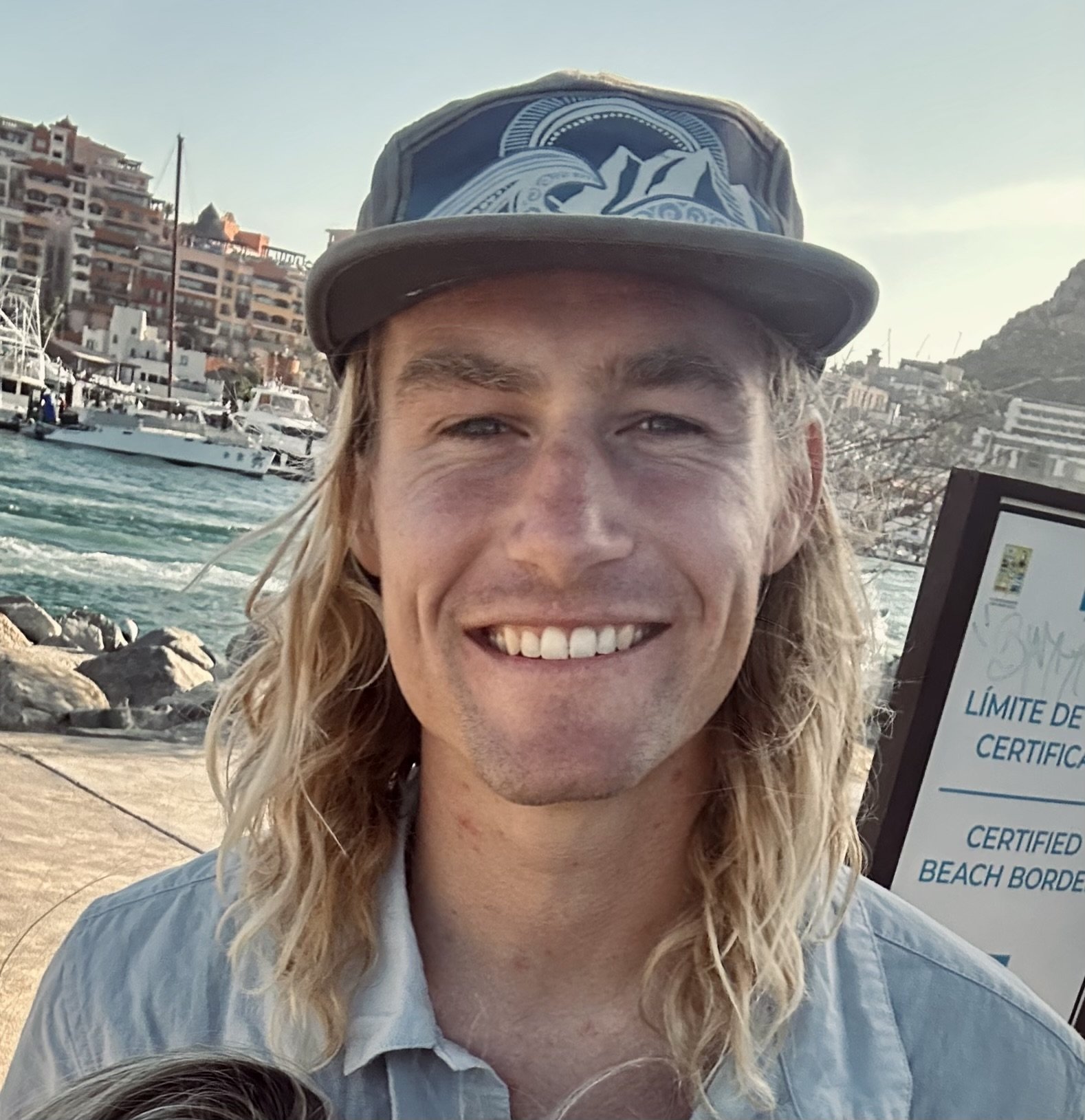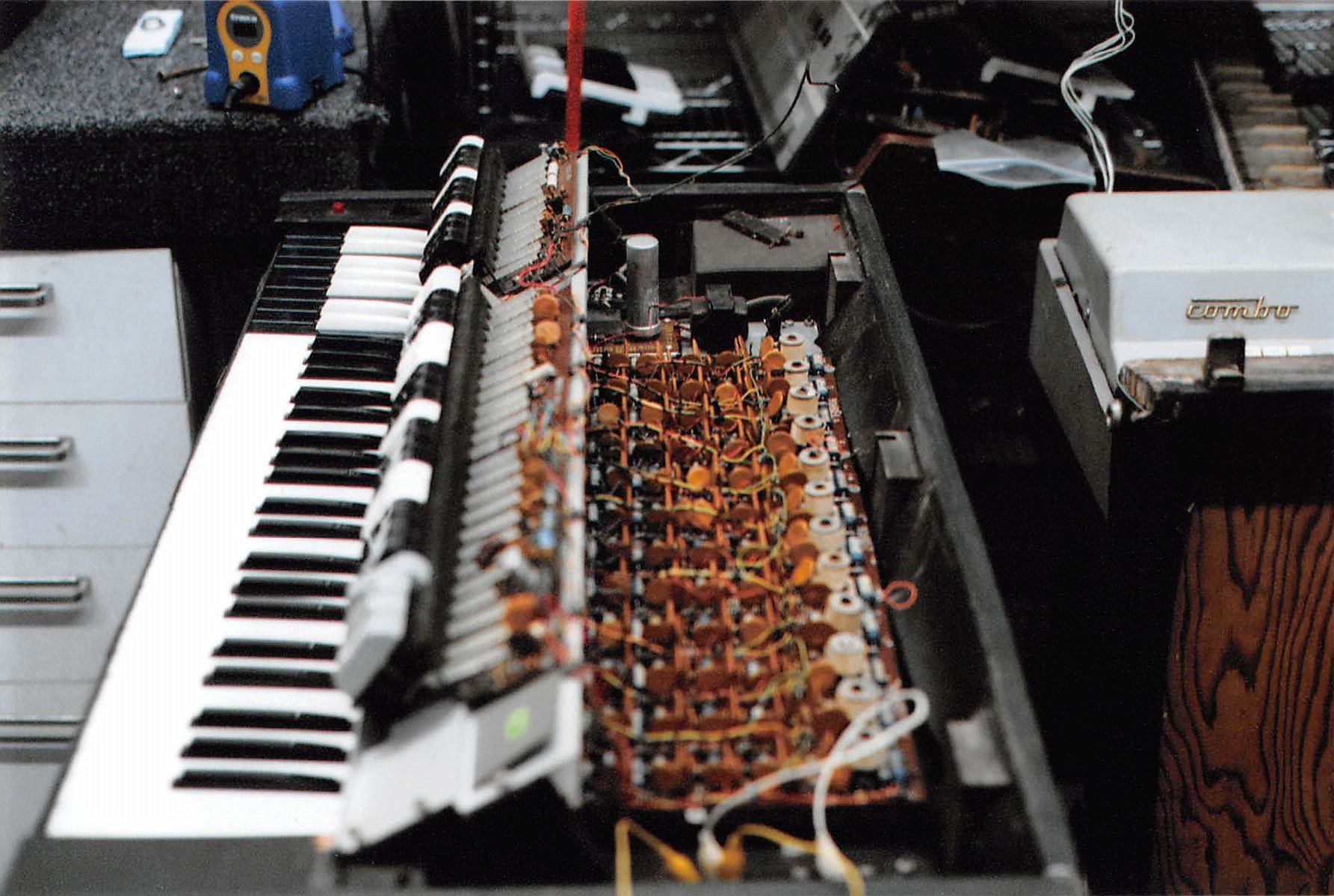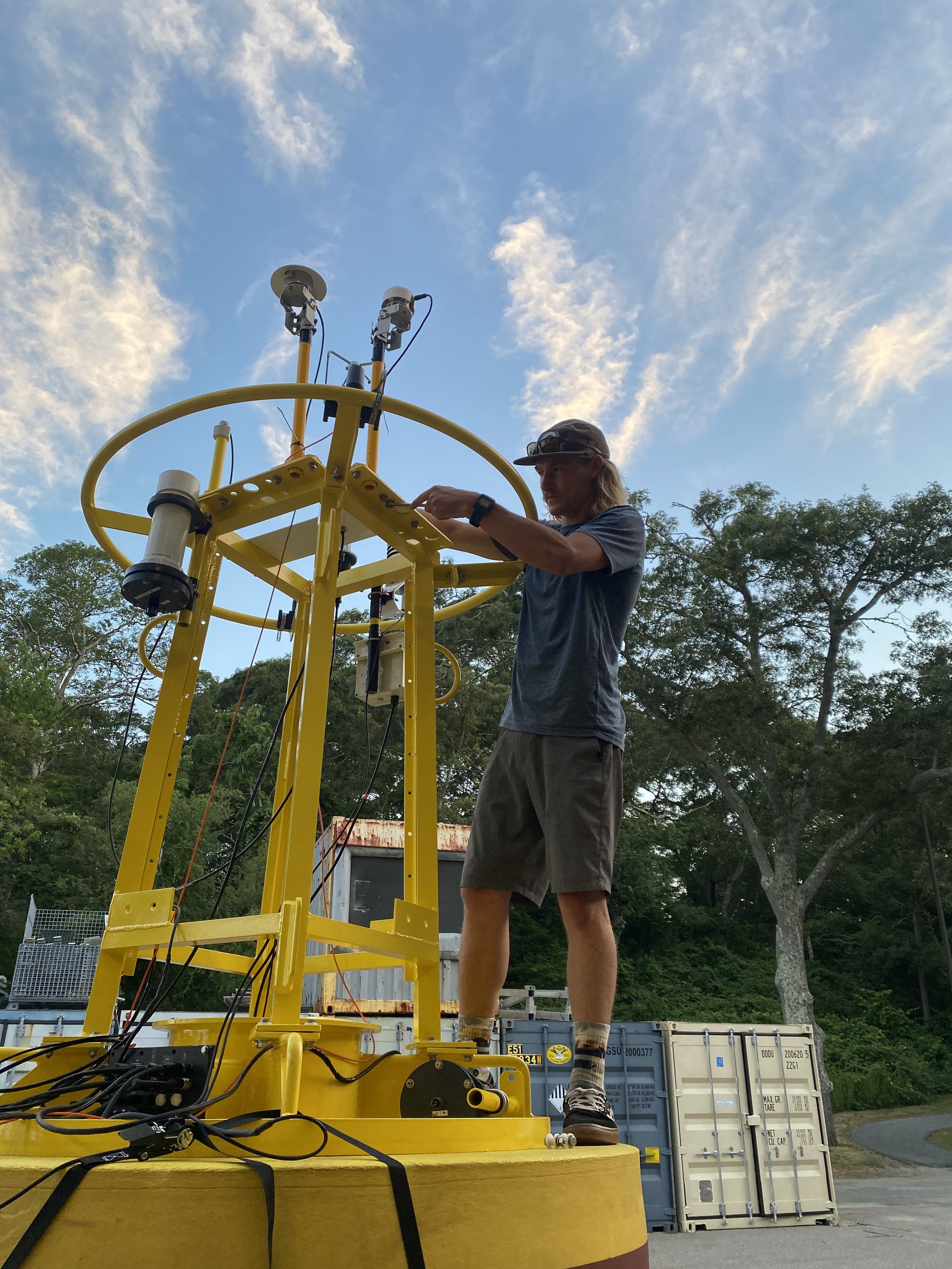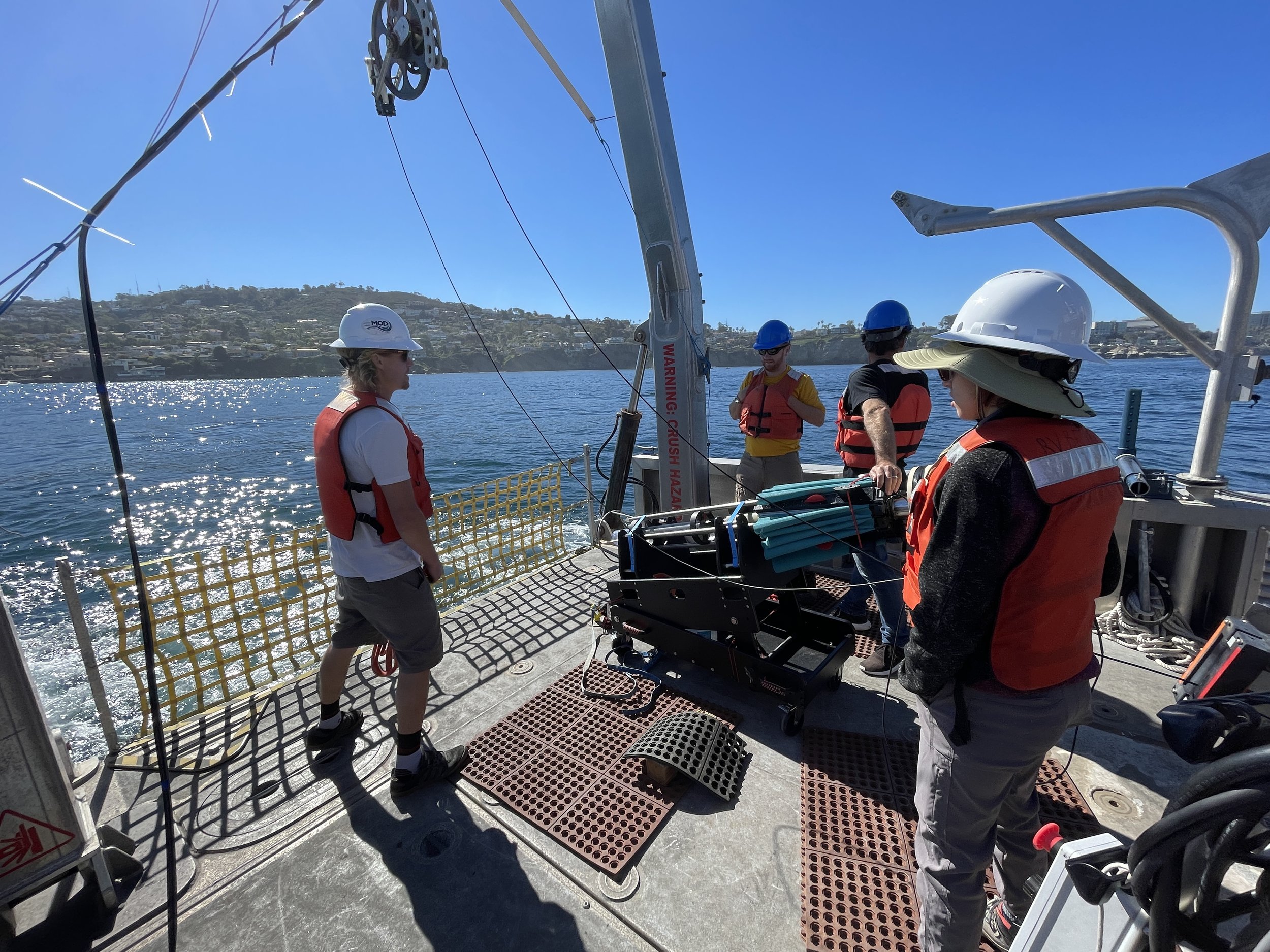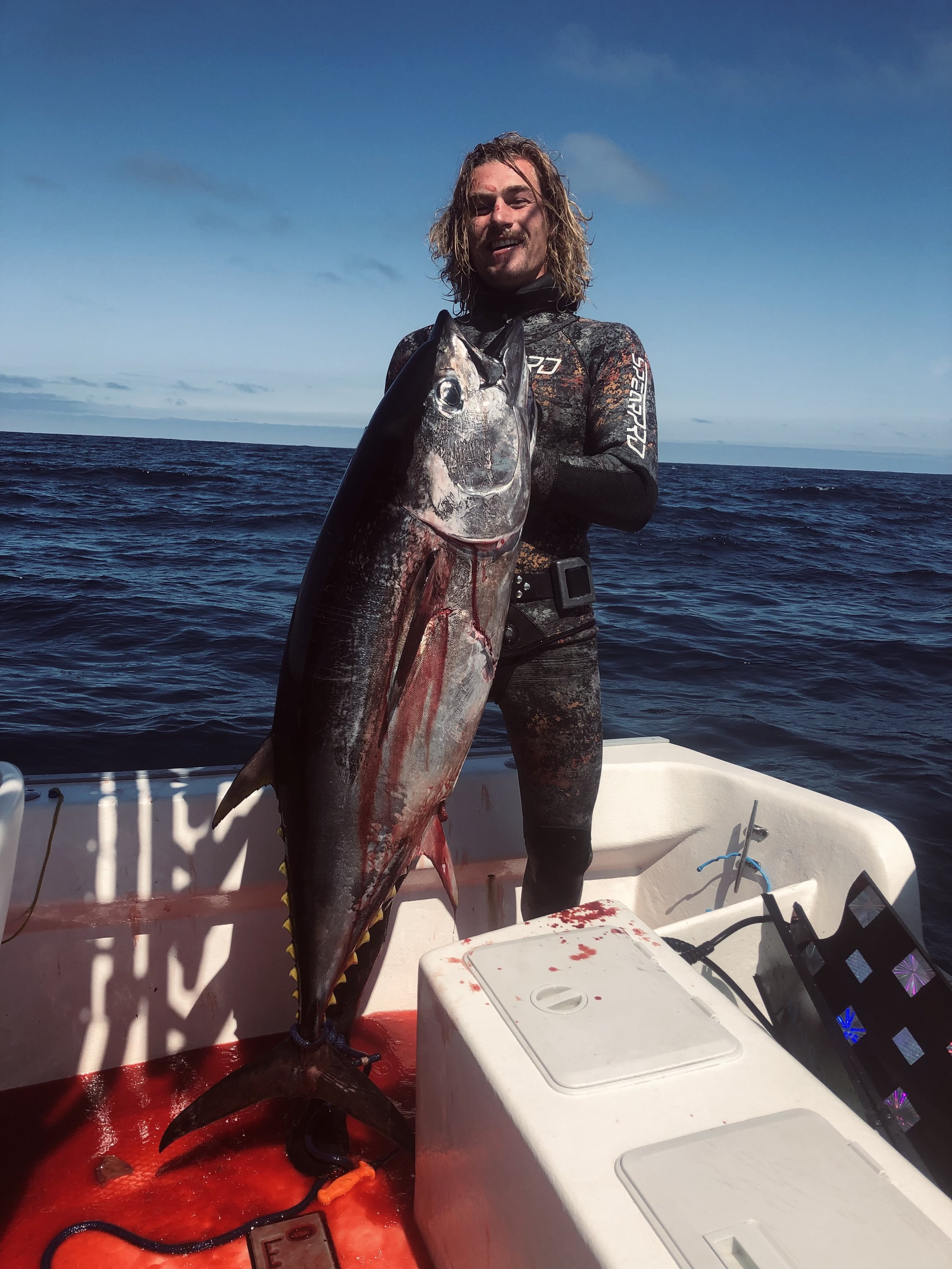What is your background and what are you studying at the moment?
My background is in physics. After finishing my undergraduate degree, I worked for a while as an electrical/mechanical engineer building electric pianos before I came back to grad school. Now I’m in my 4th year of the mechanical engineering PhD program at UCSD with Drew Lucas. With Drew as my advisor, my fluid dynamics specialization has more or less morphed into a degree in physical oceanography, and I’m very grateful for the experiences this has provided. At the moment, I am working on planning an observational experiment where we will use optical fibers to study the structure of shoaling internal waves on the inner shelf. I am also preparing a theory paper for submission that describes how nonlinear structure of the oceanic surface boundary layer impacts the power input from the atmosphere to the internal wave spectrum.
What keeps you excited and interested in working in the field of oceanography?
It’s very rewarding to work with something I’m super passionate about. I’ve spent time in and around the ocean my whole life and most things I do revolve around it. Climate change is a pressing ‘do or die’ issue that our generation is going to have to figure out, and there is no doubt the ocean plays a huge role in all that. They say we know more about the moon than we do about the ocean. It is exciting to know there is so much left to learn! At the end of the day though, I am always thinking about how I am going to help figure out a solution to some part of this problem. I want to use my understanding of the ocean to help protect and preserve it. That keeps me interested and excited most of all.
When you were a kid, did you expect to be a scientist or engineer?
I was never one of those kids with their whole life planned out, but I’ve always loved building things, tinkering, and restoration projects. I learned analog circuitry through working on amplifiers and building my own musical effects pedals. During undergrad I was restoring an old analog piano, and at one point I bought some components from this Aussie dude. As it turned out his brother owned a custom vintage piano shop. We made friends and before long I ended up working for them as an engineer. Definitely not expected, but wouldn’t have it any different.
Were there any particular things from your childhood that drew you to study the ocean?
I grew up on the coast in Virginia Beach and nearly everything in my life so far has been oriented around the ocean. I’m really into free diving, surfing, wind sports, (and now scuba thanks to ONR support for our upcoming experiment), the whole deal. The Atlantic will always have a special place in my heart. Southeast Virginia is the mouth of the Chesapeake Bay – a wild place from an oceanographic perspective. The conditions there are very different from San Diego, even the water is a different color. I guess I just couldn’t resist the call of that brownish green and murky Atlantic water…
What skills or abilities do you think are useful when going into oceanography?
A strong stomach is key for going out to sea! I’m very grateful I don’t get seasick. My hands on experience with electrical and mechanical systems has given me unique opportunities to do a lot of instrument development and fieldwork. I will say though, I definitely did myself a disservice by avoiding coding prior to grad school. Coding is a super useful skill. Now I view it for what it is – a high power calculator that can let you do whatever you want. Before though, any time spent behind a screen I avoided like the plague. Obviously, now as a grad student, a large percentage of my life is spent coding and writing. I’ve come to terms with that now, and troubleshooting a code is actually remarkably similar to troubleshooting an electrical system.
What does a typical workday look like for you?
I would say that there is no typical workday, there's just so many different things I do, and it varies a lot between weeks and months. Right now, I’m doing a lot more writing since I’m trying to get some papers done. Inevitably some coding sneaks it’s way in there when I find new ways I want to present my results. With my experiment coming up this fall, spare thoughts often end up pondering my experimental design. The experiment will involve some scuba-deployed instrumentation, so we’ve been trying to get out on scuba weekly to maintain proficiency.
What drew you to Scripps?
It was a bit of a lucky stumble actually. I tutored a lot between undergrad and grad school, tutoring is an awesome side-gig when you know math and physics. At the time, there was no upward mobility at the piano shop and I figured my academic skills were probably as sharp as they’d ever be, so I took the GRE. I applied to fluid dynamics programs at some UC’s and UCSD was the only one I got into (score!). From there, I got even luckier to end up working with Drew in the MOD group. I’m very grateful for our lab group and community, and feel super lucky to be a part of it.
Is there a particular scientist/person/thing that inspires you?
I think nature in general, and the ability to harness the forces of nature to one’s advantage is very inspiring. Pelicans are incredible creatures in this way. They use natural wind patterns to minimize flapping which is super cool on its own, but on top of that, they actually surf the updrafts that follow ocean swell! Super cool to watch. The first paper for my thesis was about this process, "wave-slope soaring," and it was a fun and challenging problem to solve! Boyan Slat's “The Ocean Cleanup” project also harnesses the forces of nature in a very clever way. They use the surface current patterns associated with ocean gyres to collect the waste of the pacific garbage patch, and more recently they are using natural effluent discharges to filter waste before it gets to the ocean in the first place – these examples of working with the flow are really cool. Nature is always going to win, so if you can be on the same team as nature that's how you’ll win too.
Do you have a fun fact that you'd like to share that not everyone knows about you?
I am probably the most blood thirsty vegan out there! For a few years now, I’ve been on the hunter gatherer diet, aka vegan plus what you can catch yourself. Living in San Diego, the obvious place to turn is the ocean. Pacific pelagic fish like tuna, yellowtail, and mahi-mahi are extremely sustainable to hunt (for example, mahi mahi have a remarkably stable population and reach maturity in 4-5 months). These fish traverse the Southern California Bight in great numbers offshore in the summer months. The process of spearfishing has given me an enormous appreciation and respect for the food that goes on my table. To dive on a single breath, become a part of the ocean’s ecosystem, and assume the role of the apex predator that humans truly are, taps into a primal instinct that I’ve found few other activities will awaken. It’s beautiful, humbling, and empowering.
Written by Kerstin Bergentz

